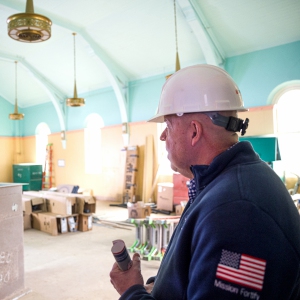Fire fatalities in 2024 on a 'disturbing' rise in New Hampshire
| Published: 07-01-2024 12:00 PM |
Thirteen people have died in fires in just the first half of 2024, according to data from New Hampshire’s fire marshal. That’s more fire-related deaths than in all of 2023, or in all of 2022.
The eleven fires that caused fatalities spanned almost every county in the state.
The youngest person who died was 36; the oldest were two people who died together in Dover earlier this June, at 93.
Nearly three quarters of the deaths this year occurred in buildings without working smoke alarms or without an adequate number of smoke alarms.
Sean Toomey, New Hampshire’s fire marshal, said the increase in deaths has been disturbing.
“The most alarming trend is the lack of smoke alarms,” he said. “When people are sleeping, the only way they're going to wake up is having a working smoke alarm.”
Toomey said smoke alarms should be placed in every bedroom, outside of every sleeping area, and on every level of a home. Alarms should be replaced after 10 years and should have their batteries changed twice a year.
Having interconnected alarms is best, officials say, and wireless ones are acceptable. If smoke alarms are hard-wired, they should have back-up batteries.
Article continues after...
Yesterday's Most Read Articles
 Concord superintendent joins over 100 school leaders in signing controversial DEI certification, but says equity work will continue
Concord superintendent joins over 100 school leaders in signing controversial DEI certification, but says equity work will continue
 Another lawsuit delays Steeplegate Mall demolition
Another lawsuit delays Steeplegate Mall demolition
 Propane tanker truck rolls over on I-93, holds up traffic
Propane tanker truck rolls over on I-93, holds up traffic
 Federal judge finds Bow School District’s actions ‘entirely reasonable’ in transgender athlete protest by parents
Federal judge finds Bow School District’s actions ‘entirely reasonable’ in transgender athlete protest by parents
 Transitional housing at risk after New Hampshire lawmakers vote to sell state-owned building
Transitional housing at risk after New Hampshire lawmakers vote to sell state-owned building
 New Hampshire set to ‘welcome home’ veterans with new 15-acre campus in Franklin
New Hampshire set to ‘welcome home’ veterans with new 15-acre campus in Franklin
Households should test smoke alarms monthly to make sure they are working properly.
Most of the deadly fires in 2024 occurred during the daytime, which is a shift from the trend in 2022 and 2023, when most occurred in the early hours of the morning.







 Hospitals sue state over NH’s Medicaid tax
Hospitals sue state over NH’s Medicaid tax Federal officials to review Bow parents’ free speech lawsuit regarding transgender athletes
Federal officials to review Bow parents’ free speech lawsuit regarding transgender athletes  Flooding from collapsed beaver dam shuts portion of Elm Street in Concord
Flooding from collapsed beaver dam shuts portion of Elm Street in Concord Bassett to retire from New Hampshire Supreme Court
Bassett to retire from New Hampshire Supreme Court
